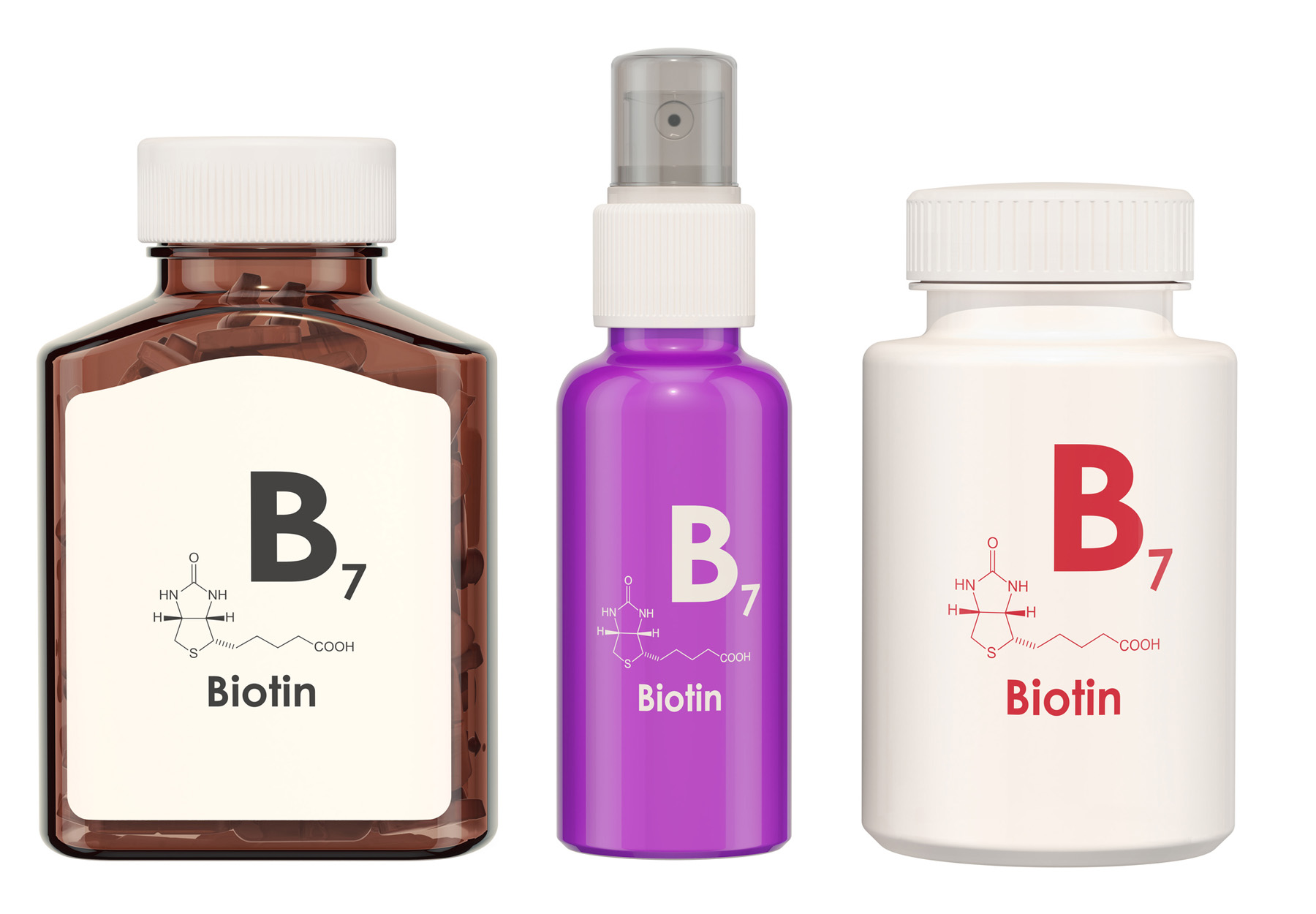In 2017, the U.S. FDA issued a safety warning to clinical labs about how potential biotin interference can lead to erroneous lab results in certain in vitro diagnostics (IVDs), including some troponin tests, that use biotin binding technology. Since the warning was issued, the FDA “continued to receive adverse events reports related to biotin interference, including with troponin tests,” according to the 2019 briefing.
Laboratory tests affected by biotin all have variations in the threshold at which biotin will interfere with their results. For example, interference thresholds can be as high as 10,000 ng/mL for some assays, whereas others have interference thresholds as low as 5 ng/mL.
Research has shown that serum biotin concentrations in people who take biotin supplements can be 55 ng/mL or higher, often depending on the size of the supplements, which vary from doses of 30 µg to 2,500–5,000 mcg or even 10,000 mcg. Thus, it’s important to understand biotin’s steady state and clearance rate in blood serum and plasma.
Not all manufacturers have taken steps to address biotin interference in their assays; however, there are several ways that clinical lab staff can help mitigate biotin interference in affected assays, writes Tyler Radke, MLS (ASCP), in a recent article for Today’s Clinical Lab.
Radke addresses common questions around biotin interference, including the following:
- What can laboratories do to mitigate biotin interference?
- What can healthcare providers do to mitigate biotin interference?
- Should test results with biotin interference be repeated?
To learn more, read the full article from G2’s partner brand, Today’s Clinical Lab.
